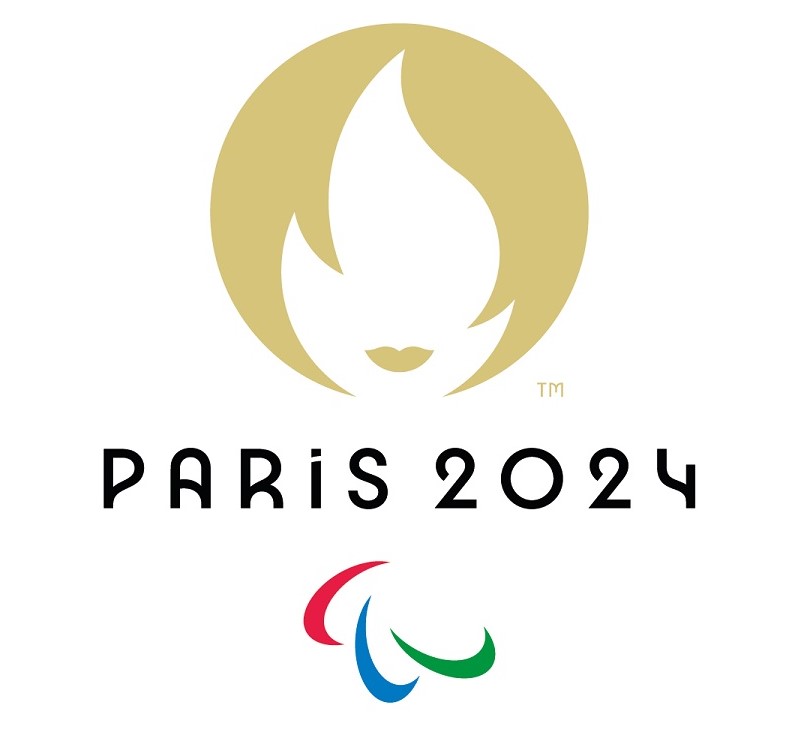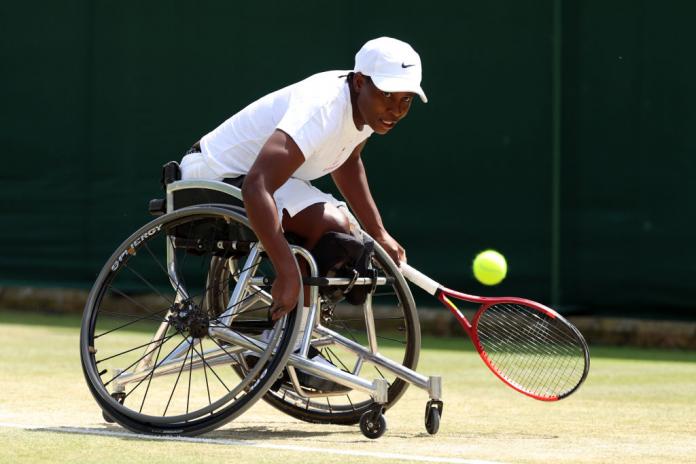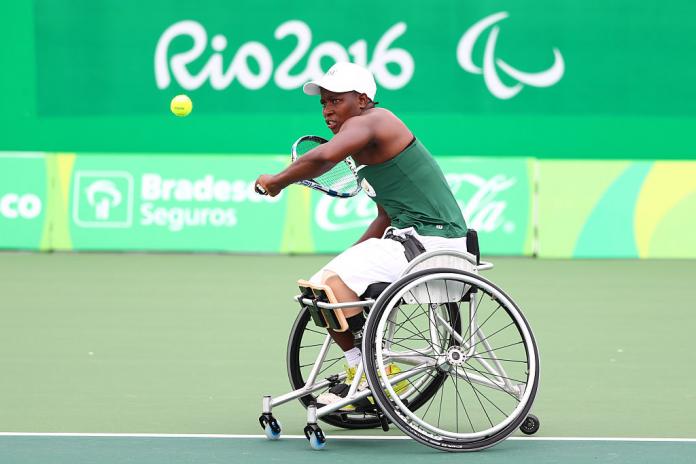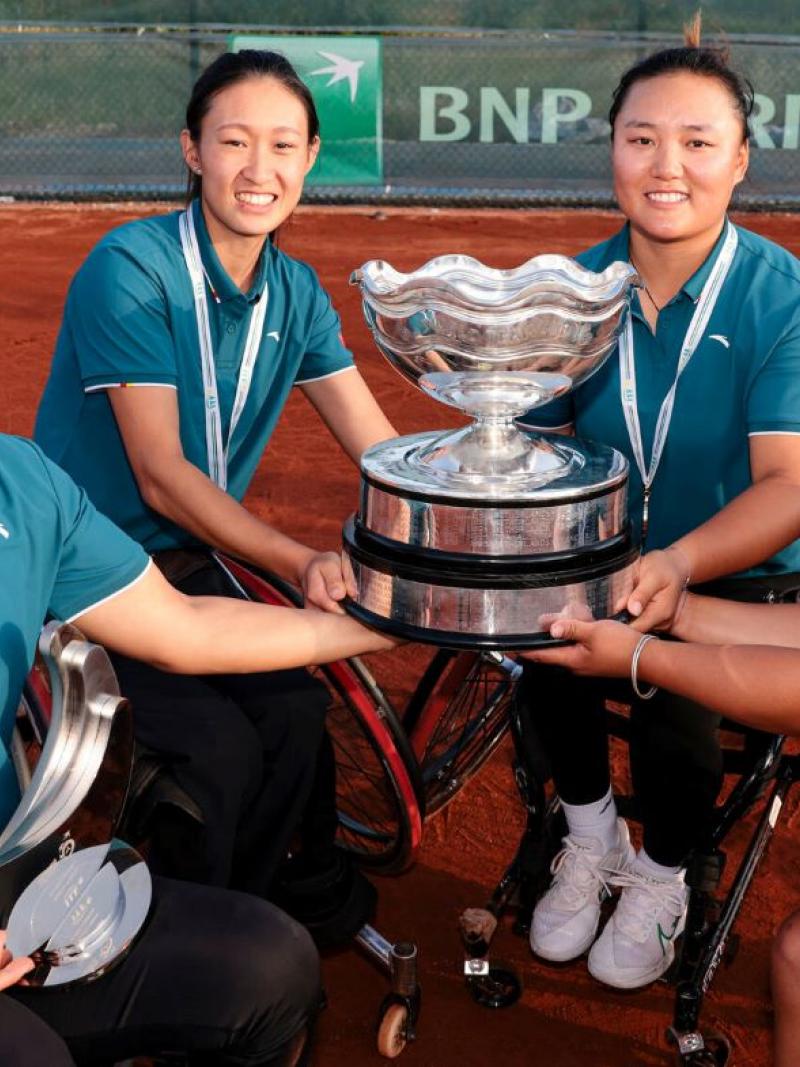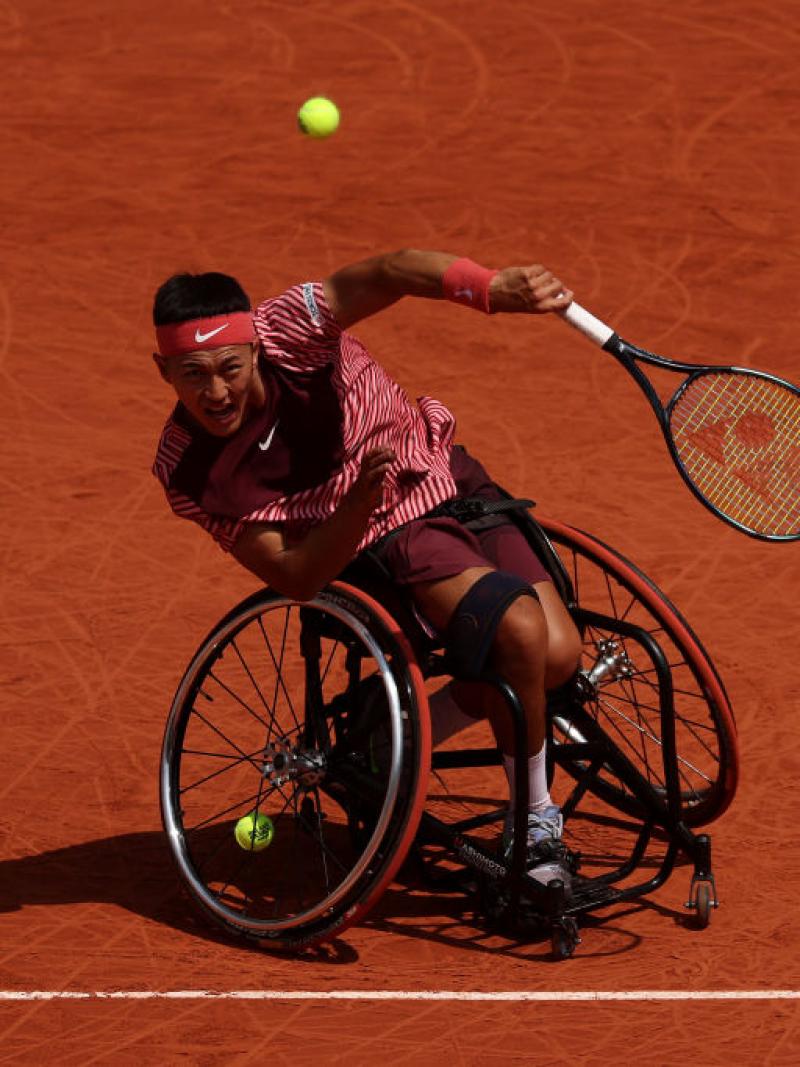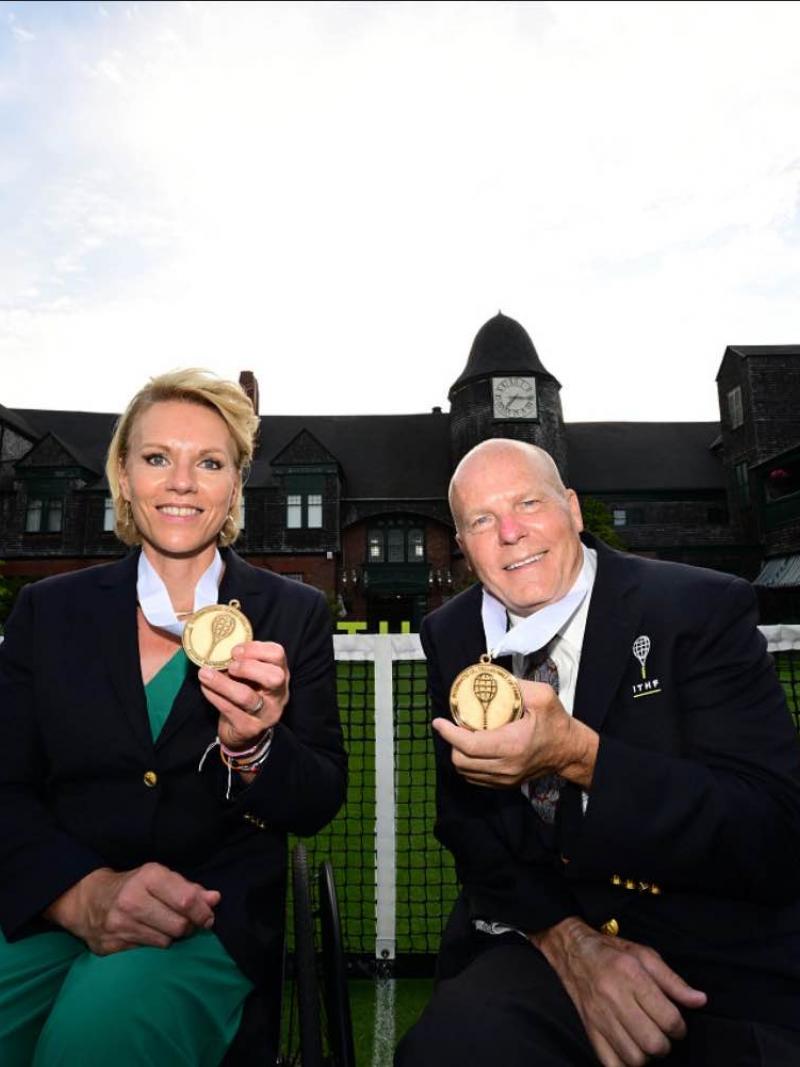Kgothatso Montjane: 'I wanted to explore different ways to train' ahead of Paris 2024
South Africa's wheelchair tennis pioneer Kgothatso Montjane shares how she is preparing for Paris 2024, her fourth Paralympic Games 23 Jul 2024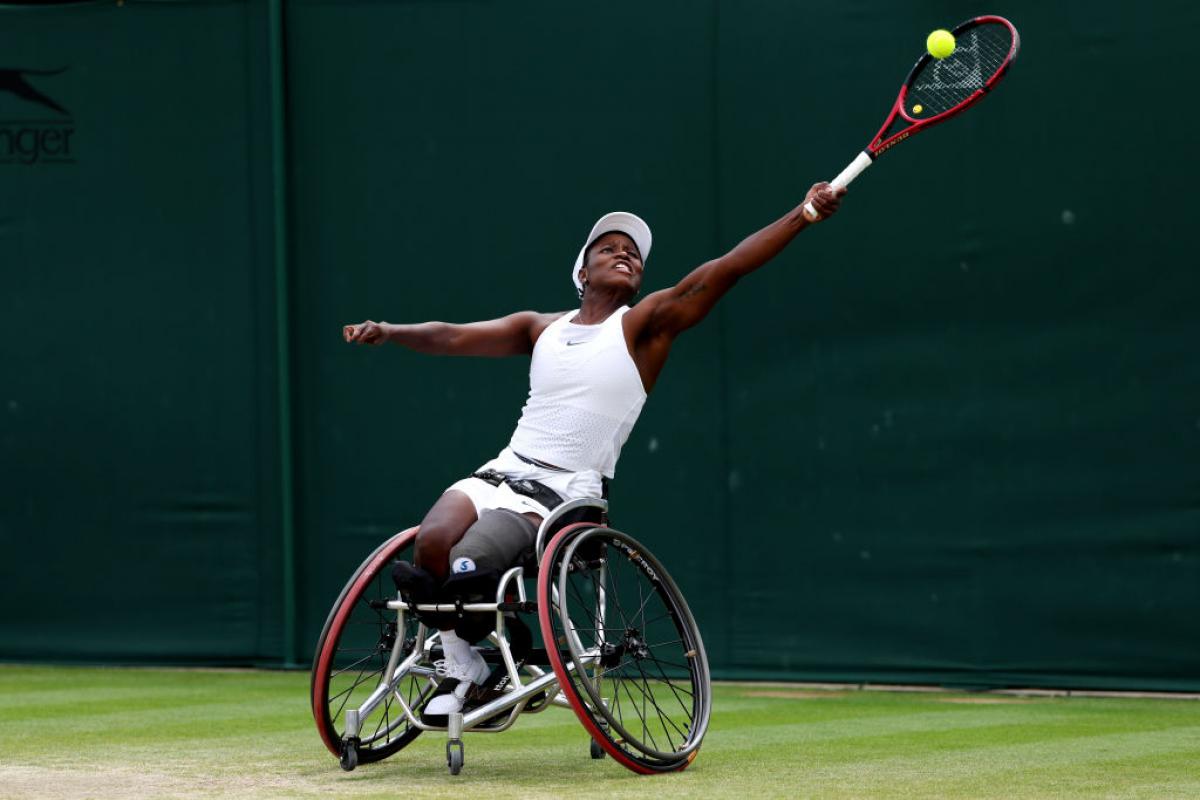
It used to be all about “the grind” for Kgothatso Montjane. Hours on court. Hours in the gym. But now, at 38 and with four Paralympic Games, a Wimbledon runner-up finish and three grand slam doubles titles to her name, the focus is very different.
“I have realised it is not about quantity, it’s just about quality and the good feeling. I need to feel good, it needs to be great.” Montjane said. “Now I go training with a specific goal I want to achieve and I focus on that and when I do it right and it feels good, I move on.”
This attitude translates across the spectrum of court time – still every day during her training blocks but always short and mostly sweet – gym time – “never more than an hour” – and even her regular movement sessions.
Balance is the key
“I am not pushing myself harder than what the body can take, and the mind can handle,” the current women’s world No. 10 said. “I don’t want to burn out. There’s so much that the body can do, there’s so much that the mind can do but you don’t want to push yourself to the edge so that when the competition comes you feel like you can’t do it.
“Even by the end of a (training) week I don’t feel drained or tired because I am balanced. Age is not on my side anymore, so I really need to do things to make sure I don’t stress the body so much. It’s about doing things the right way.”
It is the same off court. Montjane has learned a lot in almost two decades in the sport. Naturally, she now understands exactly how to fuel her body no matter the challenge: “I know what to eat just before I go to play or what to eat the night before or what to eat when I am waiting for a match to finish.”
And while she doesn’t claim to have mastered sleep, she has got to the bottom of what to do when nothing helps her handle her thoughts.
“Even when you are feeling anxious (after a match) the most important thing is to get to bed, lie down and get off the screen,” Montjane laughed. “At least then you can rest the body, even if the mind is busy.”
Inspired by others
Just as crucially, she has continued to find new ways to excite and entertain what is clearly a demanding brain.
“I wanted to explore another way to train and so I am reading a lot of psychological books and biographies. A lot of other athletes’ stories, to know how they did it,” Montjane explained. “I am enjoying Siya Kolisi’s (South Africa's men’s double Rugby World Cup winning captain). It’s so relatable to my life, to my journey. I love it so much. That’s a book I always go back to.
“Also, Billie Jean King’s (the USA’s 12-time grand slam winner and a key figure in the worldwide growth of women’s tennis) book. It makes me understand the game so much better and it reminds me of why I am doing it.”
Creating time to train
The world’s best modern-day wheelchair tennis players must carve out time to fit all this training in, or indeed any training. The calendar is bursting with tournaments and the temptation, especially in a Paralympic Games year, is to play, play, play.
“It’s difficult to create that gap because we are all focused on qualifying (for Paris 2024), but you have to sacrifice a part of your schedule and dedicate it to training,” she said earlier this year.
It is particularly pertinent for Montjane. She has achieved so much, including rising to No. 4 in the world (end of 2021), becoming the first African to compete in a wheelchair tennis slam (2013) and becoming the first African to play all four slams in a calendar year (2018). But what she really wants to do is become the first African to win a Paralympic wheelchair tennis medal.
“I need to make sure that the body is ready, most importantly and the mind is ready. I don’t want to jump from competition to Paralympics,” said Montjane, who is yet to go past the quarter-finals in her four Paralympic Games appearances.
“It’s a different event mentally. You need to be ready for that atmosphere.”
A 42 year Grand Slam wait! 🇿🇦🎾
— Paralympic Games (@Paralympics) June 13, 2023
Kgothatso Montjane (top, right) became the first South African woman to win a French Open Slam since 1981.
Donald Ramphadi (bottom, left) is the first South African man - both able-bodied and wheelchair - to win a Slam also since 1981. #RG23 pic.twitter.com/Vwyp7gILOl
‘Just go and get it done'
In an effort to fulfil her dream, Montjane competed in the European summer, including in the French Open and Wimbledon. She said she was set to take a training block break after the tournaments.
During that time her weeks will take on a similar feel. Movement twice a week, gym sessions three times a week and court time every day.
There will be specifics for Paris: “pushing on clay is different and drop shots are important”. But there will also be plenty of focus on rest and at least one session per week with her sports psychologist.
In order to pack all this in while her mind wants to flitter off to thoughts of golden times in Paris, discipline will be key. Montjane is grateful that her upbringing gives her an advantage.
“I learned it (discipline) from a young age. I was at a boarding school from 12 years old so you can imagine missing a training you wouldn’t find a lot of excuses,” she said.
When she was home in Limpopo, she was required to help grow and cook food and fetch water. So, it is no surprise to hear her add; “In my head, I used to think as a child ‘just go and get it done’."
It all helps when the days are brutal – “core days are always tough” Montjane laughs. But one thought motivates beyond all the others: “Do I really want to be on that podium in Paris? If I really do want to be on that podium I need to find my way out of those difficult days,” she added.
“It’s a push-push situation.”
Discover more about wheelchair tennis and the 22 sports in the Paris 2024 Paralympic sports programme




